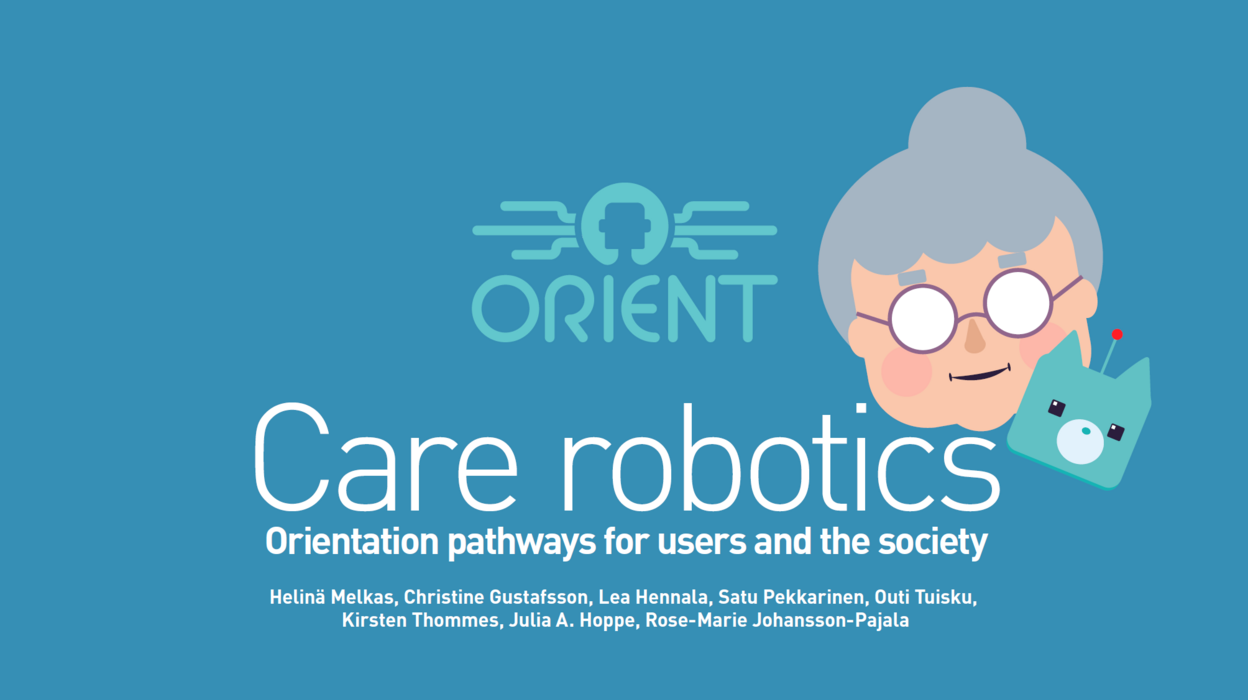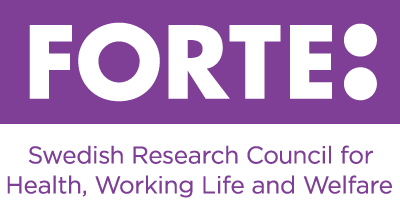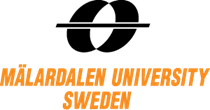Are you interested in the topic of care robots? What is your link to the topic—are you an interested citizen, a potential user, a relative, a care professional, a care manager, an educator, or a decision-maker at the local or national level? Do you, perhaps, represent a technology company or an interest organisation? Dialogue concerning care robotics is essential at the different levels of the society, from individuals through to the wider societal level. Everyone benefits from good care robot orientation. This guide serves different kinds of readers— anyone who is interested in care robots. In particular, it is helpful for care organisations, professional caregivers, and decision-makers at different societal levels, in vocational and continuing education, and for individuals’use.
Its aim is to ‘wake people up’: to visualise, raise questions, and provoke thought, rather than give precise answers. Its aim is to identify essentials, offer tips, and encourage and support people in care robot orientation activities — as providers or receivers — but also in finding out more about care robots and participating in general discussions about their use. We also hope that it will increase familiarity with care robots among people who are still unacquainted with them. We hope that each reader will locate the sections that are most relevant for her/his needs and interests.
The guide was prepared in an international research project called ORIENT, which focused on orientation for the use of care robots in welfare services for older adults. The guide is based on scientific articles and unpublished material produced by the project, and more than 130 user and societal-level interviews conducted in Finland, Sweden, and Germany. The guide uses numerous interview quotations to represent the voices of the users and various stakeholders.
An animated overview video can be found here .
The project Orient is done in cooperation with the LUT University and the Mälardalen University Sweden. Moreover it is financially supported by the Academy of Finland, the Swedish Research Council for Health, Working Life and Welfare (FORTE) and the Federal Ministry of Education and Research of Germany.





